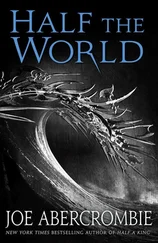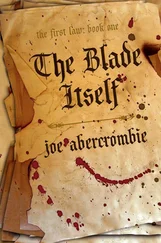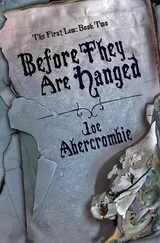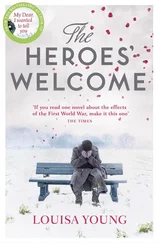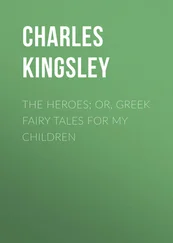Abercrombie, Joe - The Heroes
Здесь есть возможность читать онлайн «Abercrombie, Joe - The Heroes» весь текст электронной книги совершенно бесплатно (целиком полную версию без сокращений). В некоторых случаях можно слушать аудио, скачать через торрент в формате fb2 и присутствует краткое содержание. Жанр: Старинная литература, на русском языке. Описание произведения, (предисловие) а так же отзывы посетителей доступны на портале библиотеки ЛибКат.
- Название:The Heroes
- Автор:
- Жанр:
- Год:неизвестен
- ISBN:нет данных
- Рейтинг книги:5 / 5. Голосов: 1
-
Избранное:Добавить в избранное
- Отзывы:
-
Ваша оценка:
- 100
- 1
- 2
- 3
- 4
- 5
The Heroes: краткое содержание, описание и аннотация
Предлагаем к чтению аннотацию, описание, краткое содержание или предисловие (зависит от того, что написал сам автор книги «The Heroes»). Если вы не нашли необходимую информацию о книге — напишите в комментариях, мы постараемся отыскать её.
The Heroes — читать онлайн бесплатно полную книгу (весь текст) целиком
Ниже представлен текст книги, разбитый по страницам. Система сохранения места последней прочитанной страницы, позволяет с удобством читать онлайн бесплатно книгу «The Heroes», без необходимости каждый раз заново искать на чём Вы остановились. Поставьте закладку, и сможете в любой момент перейти на страницу, на которой закончили чтение.
Интервал:
Закладка:
These were very different circumstances, however, it had to be admitted. No one was wearing a sash, not even him. And there was the blood, the corpses, the spreading panic. The unearthly wailing of the Northmen, who were flooding through the gaps between the stones and into the trampled circle of grass at their centre. Virtually a constant press of them now, as far as Wetterlant could see. The difficulty with a ring of standing stones as a defensive position is undoubtedly the gaps between them. The Union line, if you could use the phrase about an improvised clump of soldiers and officers fighting desperately wherever they stood, was bulging back under the pressure, in imminent danger of dissolving all together, and with nowhere defensible to dissolve back to.
Orders. He was in command, and had to give orders. ‘Er!’ he shouted, brandishing his sword. ‘Er …’ It had all happened so very, very fast. What orders would Lord Marshal Varuz have given at a time like this? He had always admired Varuz. Unflappable.
Culfer gave a thin scream. A narrow split had appeared in his shoulder, right down to his chest, splinters of white bone showing through it. Wetterlant wanted to tell him not to scream in a manner so unbefitting of an officer in the King’s Own. A scream like that might be good enough for one of the levy regiments, but in the Sixth he expected a manly roar. Culfer almost gracefully subsided to the ground, blood bubbling from the wound, and a large Northman stepped up with an axe in his fist and began to cleave him into pieces.
Wetterlant was vaguely conscious that he should have jumped to the aid of his second-in-command. But he found himself unable to move, fascinated by the Northman’s expression of businesslike calm. As if he was a bricklayer getting a difficult stretch of wall to meet his high standards. Eventually satisfied by the number of pieces he had made of Culfer – who still, impossibly, seemed to be making a quiet squealing sound – the Northman turned to look at Wetterlant.
The far side of his face was crossed by a giant scar, a bright ball of dead metal in his eye socket.
Wetterlant ran. There was not the slightest thought involved. His mind was turned off like a candle snuffed out. He ran faster than he had in thirty years or more, faster than he thought a man of his years possibly could. He sprang between two of the ancient stones and jolted down the hillside, boots thrashing at the grass, vaguely conscious of other men running all around him, of screams and hisses and threats, of arrows whipping through the air about his head, shoulders itching with the inevitability of death at his back.
He passed the Children, then a column of dumbstruck soldiers who had been on their way up the hill and were just now scattering back down it. His foot found a small depression and the shock made his knee buckle. He bit his tongue, flew headlong, hit the ground and tumbled over and over, no way of stopping himself. He slid into shadow, finally coming to an ungainly stop in a shower of leaves, twigs, dirt.
He rolled stiffly over, groaning. His sword was gone, his right hand red raw. Twisted from his grip as he fell. The blade his father had given him the day he received his commission in the King’s Own. So proud. He wondered if his father would have been proud now. He was in among trees. The orchard? He had abandoned his regiment. Or had they abandoned him? The rules of military behaviour, so unshakeable a foundation until a few moments ago, had vanished like smoke in a breeze. It had happened so fast.
His wonderful Sixth Regiment, his life’s work, built out of copious polish, and rigorous drill, and unflinching discipline, utterly shattered in a few insane moments. If any survived it would be those who had chosen to run first. The rawest recruits and most craven cowards. And he was one of them. His first instinct was to ask Major Culfer for his opinion. He almost opened his mouth to do it, then realised the man had been butchered by a lunatic with a metal eye.
He heard voices, the sounds of men crashing through the trees, shrank against the nearest trunk, peering around it like a scared child over their bedclothes. Union soldiers. He shuddered with relief, stumbled from his hiding place, waving one arm.
‘You! Men!’
They snapped around, but not at attention. In fact they stared at him as if he was a ghost risen from a grave. He thought he knew their faces, but it seemed they had turned suddenly from the most disciplined of soldiers into trembling, mud-smeared animals. Wetterlant had never been afraid of his own men before, had taken their obedience entirely for granted, but he had no choice but to blather on, his voice shrill with fear and exhaustion.
‘Men of the Sixth! We must hold here! We must—’
‘Hold?’ one of them screeched, and hit Wetterlant with his sword. Not a full-blooded blow, only a jarring knock in the arm that sent him sliding onto his side, gasping more from shock than pain. He cringed as the soldier half-raised the sword again. Then one of the others squealed and scrambled away, and soon they were all running. Wetterlant looked over his shoulder, saw shapes moving through the trees. Heard shouting. A deep voice, and the words were in Northern.
Fear clutched him again and he whimpered, floundered through the slick of twigs and fallen leaves, the slime of rotten fruit smeared up his trouser leg, his own terrified breath echoing in his ears. He paused at the edge of the trees, the back of one sleeve pressed to his mouth. There was blood on his dangling hand. Seeing the torn cloth on his arm made him want to be sick. Was it torn cloth, or torn flesh?
He could not stay here. He would never make it to the river. But he could not stay here. It had to be now. He broke from the undergrowth, running for the shallows. There were other runners everywhere, most of them without weapons. Mad, desperate faces, eyes rolling. Wetterlant saw the cause of their terror. Horsemen. Spread out across the fields, converging on the shallows, herding the fleeing Union soldiers southwards. Cutting them down, trampling them, their howls echoing across the valley. He ran on, ran on, stumbling forwards, snatched another look. A rider was bearing down on him, he could see the curve of his teeth in a tangled beard.
Wetterlant tried to run faster but he was so tired. Lungs burning, heart burning, breath whooping, the land jerking and see-sawing wildly with every step, the glittering hint of the shallows getting gradually closer, the thunder of hooves behind him—
And he was suddenly on his side, in the mud, an unspeakable agony burning out from his back. A crushing pressure on his chest as if there were rocks piled on it. He managed to move his head to look down. There was something glinting there. Something shining on his jacket in the midst of the dirt. Like a medal. But he hardly deserved a medal for running away.
‘How silly,’ he wheezed, and the words tasted like blood. He found to his surprise, and then to his mounting horror, that he could not breathe. It had all happened so very, very fast.
Sutt Brittle tossed the splintered shaft of his spear away. The rest was stuck in the back of that running fool. He’d run fast, for an old man, but not near as fast as Sutt’s horse, which was no surprise. He hauled the old sword out, keeping the reins in his shield hand, and dug in his heels. Golden had promised a hundred gold coins to the first of his Named Men across the river, and Brittle wanted that money. Golden had showed it, in an iron box. Let ’em feel it, even, everyone’s eyes on fire with looking at it. Strange coins, a head stamped on each side. Came from the desert, far away, someone had said. Sutt didn’t know how Glama Golden came by desert coins, but he couldn’t say he much cared either.
Gold was gold.
Читать дальшеИнтервал:
Закладка:
Похожие книги на «The Heroes»
Представляем Вашему вниманию похожие книги на «The Heroes» списком для выбора. Мы отобрали схожую по названию и смыслу литературу в надежде предоставить читателям больше вариантов отыскать новые, интересные, ещё непрочитанные произведения.
Обсуждение, отзывы о книге «The Heroes» и просто собственные мнения читателей. Оставьте ваши комментарии, напишите, что Вы думаете о произведении, его смысле или главных героях. Укажите что конкретно понравилось, а что нет, и почему Вы так считаете.

